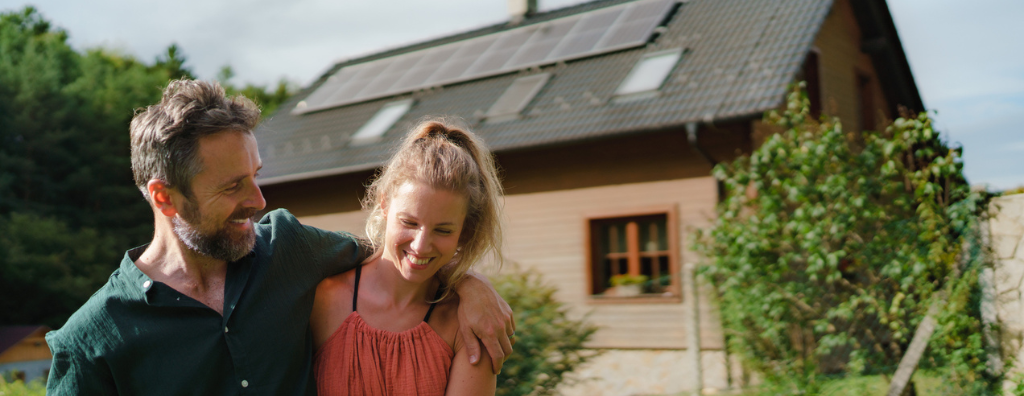
Buying a home is one of the largest investments you’ll make in your lifetime, which is why it’s important to take a long-term approach when looking at potential properties. In addition to imagining what your living situation will be over the next few decades and how your future home will accommodate it, you may also want to consider the impact you and your household will have on the environment.
Whether you’re buying a fixer-upper, a home that is move-in ready, or something in between, here are some eco-conscious things to consider as you’re shopping for a home.
HVAC Systems
How you heat and cool your home’s interior is one of the biggest contributors to your energy expenditure.
As you look at homes, be sure to look at the furnace, heat pump, or AC unit. Are they up to date or could you replace them with something more efficient? If you have the opportunity, check to see how well insulated the house is. If that’s not an option, be sure to ask during the home inspection to see if there is enough to keep your home warm in winter and keep the heat out during warmer weather.
If you are one of the many would-be homeowners who are considering going solar, look for homes that have a significant area—usually the roof—that faces to the south and isn’t obstructed by trees or taller houses.
Appliances
In most cases, the home you purchase will come with the appliances that are already in it. Do the homes you’re viewing have Energy Star-certified appliances in the kitchen and laundry room? If not, is upgrading to a more energy-efficient oven, refrigerator, washing machine, or dryer in your budget?
. And be sure to look for rebates or tax credits in your city or state that reward these kinds of upgrades.
Windows
It doesn’t matter how efficient your heating and cooling systems are if your windows are letting the air escape through leaks in the seals or old, thin glass. Upgrading to properly sealed dual-paned windows can seem costly, but the savings in energy bills will quickly show an ROI. Tax credits and rebates may apply here as well.
More: Top Things to Consider When Choosing Your Window Style
Roof
If the home you’re making an offer on needs a new roof, you have lots of eco-friendly options to consider. Homes in sunnier climates could see energy savings by installing a “cool” roof that absorbs less heat due to its light or white color. Today’s roofing can be made of reclaimed materials, including recycled shingles, slate, or tile. These may cost a little more, but the peace of mind you get from keeping these things out of landfills is priceless.
If you’ve got a green thumb and want to show it off with the top of your house, a living roof may be right for you. Living roofs rely on native vegetation to both clean the air and insulate the home as well as absorb rainwater. This kind of roof is best for houses with less of an angled profile and that have easy access to the roof for regular maintenance.
Landscaping
The greenest yard isn’t the one with the most luxurious grass; it’s the one that requires the least amount of water and chemicals to maintain. Native plants and xeriscaping are natural choices for low-maintenance outdoor spaces. You can also consider gravel, paving stones, or turf instead of grass and decorate with large rocks or reclaimed wood. Trees that shed their leaves in the fall provide shade in the summer months, habitats for hibernating animals and insects in winter, and mulch for the rest of your yard in the spring.
More: Landscaping Tips that Can Increase Your Home’s Value
Water Heater
We all love a warm shower, of course, but traditional water heaters are one of the least efficient appliances in our homes. Heating up water takes a lot of energy and keeping it at a high temperature takes even more. Tankless water heaters, on the other hand, heat water on demand rather than wasting energy to maintain it. In addition to the energy savings, tankless water heaters mean you never run out of hot water—no more frigid showers!
 Facebook
Facebook
 X
X
 Pinterest
Pinterest
 Copy Link
Copy Link
